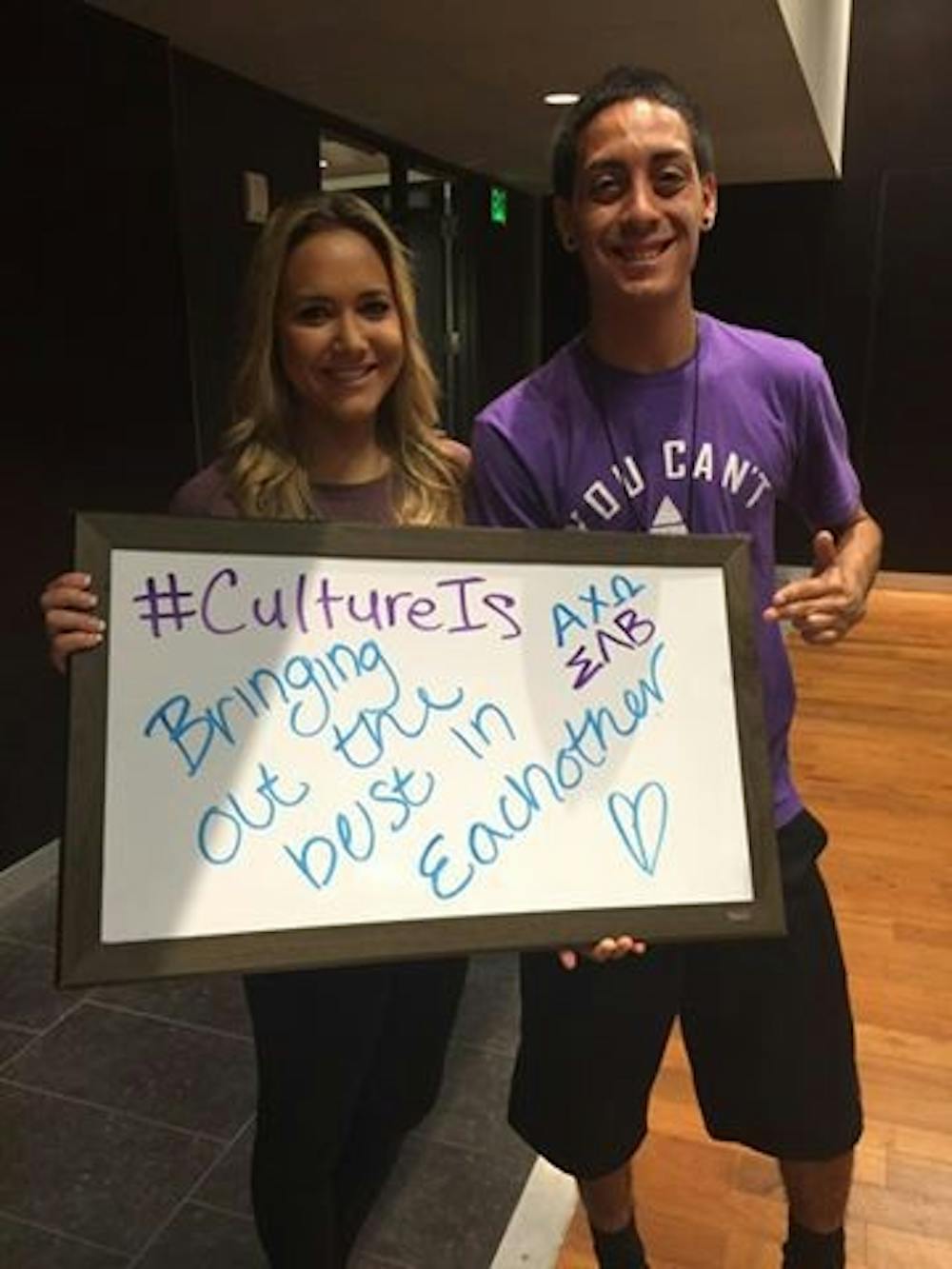The brothers of Sigma Lambda Beta, a Latino-based fraternity, want to spread the message that culture means more than skin color and ethnicity. Together, they started a cultural campaign on social media that encourages students to showcase what culture means to them.
Students can join the campaign by writing on a whiteboard or making a sign that says, "Culture is" and then describing what it means to be who they are. Then, students post the image on Instagram or Twitter with the hashtag: #Cultureis, Sigma Lambda Beta President Connor Udasco said.
"We’re not looking for students to define what culture is, we’re looking for them to share their own story," he said. "It goes deeper than skin color, and beyond stereotypes, everyone has their own unique story to tell."
Udasco said it is the small things that people often overlook, like family traditions that define what culture truly is.
"We had a third grader write that culture is going to a Dodgers game, and at first you might think, 'That's not culture,' but if that is what he and his family do, then that's really cool and special," he said.
Udasco said a part of the campaign's goal is to break down the barriers of stereotypes on the basis of skin color. He said he enjoys seeing submissions that cause people to think outside of societal norms.
"A Filipino girl wrote that she didn't know what culture is anymore because she's been influenced by so many, and it was just so different, because it made people think," he said. "I think that's the whole idea behind this, because you can't tell someone that their culture is wrong, and you can't tell someone that what they write isn't indicative of who they are."
Udasco said he and a few of his fraternity brothers have discussed how people outside of their organization often assume they know what their culture is like purely because of the color of their skin. This awareness campaign is meant to dispel those misconceptions and showcase what their cultures are really like.
"Myself and two other fraternity brothers are brown, and people just kind of assume we’re Hispanic or Mexican," Udasco said. "I myself am Filipino and white, Bryan is Salvadorian, and Kyle is Navajo, but being in a Latino-based fraternity, everyone just assumes you're Mexican. We're not the only ones experiencing this identity crisis."
Criminal justice major Bryan Canales is the fraternity's social chair. He said the team organized a cultural awareness campaign to celebrate students' individuality.
"One morning, while I was walking around campus, I started thinking about how the ASU campus is super diverse," Canales said. "I started thinking about what these students thought about the culture they live in. I was curious to see if they have the same views as I did. Now that we have over 100 pictures of people that have participated, I understand that everyone has a unique story that we should all respect."
Canales said to him culture is eating pupusas with beans, cheese, and loroco plant with his family every weekend. In his social media posts, he wrote part of the sentence in English and the other part in Spanish to signify his blended culture.
"It describes who I am in just one sentence," Canales said. "It shows that I am bilingual, and also that I come from an El Salvadorian background because of pupusas being a main Salvadorian dish. I personally need to visit my parents every weekend and that shows that my culture is family-oriented."
Nursing freshman Melissa Estorga said she is very supportive of the cultural campaign, as she believes there is a lack of cultural awareness on campus.
"A lot of people judge others based on what they look like on the outside, and think that if you're not like them then you're the one that's wrong," Estorga said. "I like hearing that there are people out there working to spread the real meaning of culture."
The cultural campaign has now spread beyond ASU and into local elementary schools, UA, El Paso, Guatemala and Mexico. Canales said he has been overwhelmed by the positive response he's received from students participating in this campaign.
"I hope the message people will take from this campaign is that being culturally aware in our communities is important, because no matter who you are and where you come from, we are all unique, but not so different," Canales said.
Reach the reporter at jnsoto2@asu.edu or follow her on Twitter @JacquelineSot0
Like The State Press on Facebook and follow @statepress on Twitter.







